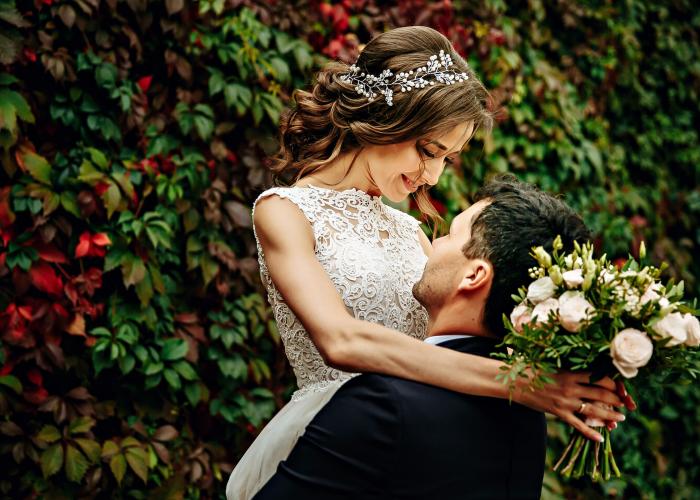A postnuptial agreement can help you protect your income and financial assets should marriage end in divorce or if you decide to end your civil partnership.
If you’re considering a postnuptial agreement or would like advice on reviewing an existing postnuptial agreement, speak to our legal experts at Lund Bennett Law on 0161 924 0079, or send us a message via our contact form.
Family Problems? We can help.
Speak to our specialist family lawyers for fixed price advice and guidance
You will get..
- Best advice on all family law matters
- Support and guidance on next steps
- Transparent pricing and fixed fee's available

Call us now on:
01619240079
How can we help?
Contact us for an initial consultation
FAQs
A postnuptial agreement is a contract between two partners drafted after getting married or entering a civil partnership. You and your partner decide on the distribution and division of any separate and shared assets upon divorce, including
- Money
- Pensions or inheritance
- Property
- Businesses
- The financial interests of your children from a previous relationship should your marriage end in a divorce,
- and joint debts.
If you have decided to get a postnuptial agreement drafted by a solicitor, it will need to meet the requirements outlined below:
- That you both have had the opportunity to obtain or preferably have both obtained independent legal advice before entering into the agreement.
- That the terms of any proposed agreement are fair or at least not patently unfair, e.g. if there are children and the agreement excludes assistance for their support or re-housing.
- There has been full disclosure of your respective financial positions.
- There is no evidence of undue influence, duress or any other form of pressure placed on either one of you.
- The agreement must be contractually valid and enforceable and made by way of a deed.
- It must contain a statement signed by each party that he or she understands that the agreement will restrict the court’s discretion to make financial orders.
- You and your partner must both agree and sign your postnup after entering your new marriage or civil partnership.
At Lund Bennett Law, we advise our clients to sign their postnup before at least one witness who is not a family member and over 18. A qualified legal professional should always review postnuptial agreements. You and your partner should also seek individual legal advice. To speak to a family law solicitor about your postnup, call our offices on 0161 924 0079, or reach out to our team via our contact form.
A postnup is not legally binding in England and Wales. The Court will look at several factors when considering whether or not to uphold a postnuptial agreement and hold the parties to its terms, including whether or not the agreement is fair. The Court are likely to give effect to an agreement that is entered into freely with full appreciation of the implications unless, in the circumstances, it would not be fair to hold the parties to that agreement.
Beyond this, the Court will consider whether each party has freely and knowingly entered into the agreement and obtained independent legal advice and whether it has provided for any future changes. It is always advisable to have the agreement reviewed every 5 years.
A postnuptial agreement can provide you with certainty and peace of mind over your financial future should your marriage or civil partnership fail and result in a divorce. A postnup can help you:
- Protect your income.
- Protect your business interests and assets.
- Protect individual property you may own prior to your new marriage.
- Protect any pre-marital assets and yourself from your partner’s past or future debts.
- Enable you to ensure the financial support of your children from a previous relationship.
- Protect your family’s inheritance or significant wealth, which you wish to keep separate.
There is a common misconception that postnups are only feasible for people with a high income or significant assets. There is actually no minimum wealth threshold for drafting a postnuptial agreement. You may wish to protect your pension or property or expect a family inheritance in the future. There may also be a wealth disparity between you and your partner, with one having more assets that they wish to protect.
Costs for a postnup will vary depending on its complexity. At Lund Bennett Law, we will provide you with a cost breakdown, including taking instructions, the agreement draft, amendments, and follow up discussions.
If you have received a quote for a postnup from a third party and would like to get a second opinion, contact us for a free consultation on 0161 924 0079.
Postnuptial agreements are individual contracts agreed between two parties with no set time limit on their validity. However, it is recommended that they are subject to review every 5 years.
You should be aware that the longer the marriage, the more likely it is that events have rendered what might have seemed fair at the time of the agreement, unfair now. Therefore they should be reviewed to consider any significant events such as children or a significant change in work.
At Lund Bennett Law, we offer comprehensive, expert legal advice for clients wishing to draft prenuptial or postnuptial agreements. Speak to our team on 0161 924 0079 for your free, no-obligation consultation, or you can get in touch via our contact form.
Contact us on 0161 924 0079 for your no-obligation consultation.
Related services
We offer our clients a wide range of family law related services.




















